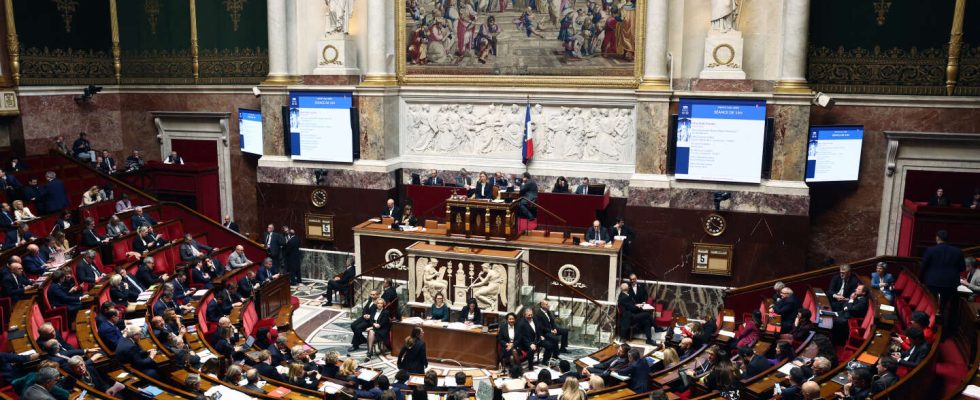After the Senate, the National Assembly unanimously approved at first reading, Wednesday March 6, a bill aimed at recognizing and repairing the harm suffered by homosexual people due to discriminatory laws in force between 1942 and 1982.
The Assembly reestablished the principle of financial reparation for people convicted of homosexuality, and the creation of a commission responsible for ruling on requests for financial reparation, which the Senate had removed.
The text, initially carried by the socialist senator Hussein Bourgi, was the subject of a very broad consensus, 331 deputies having approved it out of 331, even if certain groups expressed reservations on the principle of financial reparation.
“We do not wish, like others, to distort [la loi] by issues which appear mercantile, which the interested parties do not demand and which would tend to reduce our text to a simple creation of allocations”explained in particular the National Rally deputy Sébastien Chenu.
A “totally unfair repression”
In his introductory remarks, the Minister of Justice, Eric Dupond-Moretti, asked for forgiveness from people who were victims of discrimination because of their homosexuality. “It is high time to (…) say this evening in the name of the French Republic: forgiveness, forgiveness to the people, to the homosexuals of France who suffered for forty years during this totally unfair repression. Our Republic is never as beautiful as when it recognizes that it has lost the thread of its founding principles, liberty, equality, fraternity.he stressed.
Mr. Dupond-Moretti, who, in the Senate, had gone in the direction of the rapporteur by estimating “extremely complex” there ” put into practice “ of the compensation measure, this time said ” hears[re] and share[r] » THE ” wish (…) that the compensation be precisely fixed in the law and be implemented by a commission established ad hoc”.
But he drew attention to the fact that this commission would be faced with “probative difficulties” : “For some people it will not be easy to prove that they have actually spent a specific time in prison or that they have paid the fine to which they were sentenced. It is therefore essential that in the final drafting of this text, we ensure not to create disappointments which would result from these evidentiary difficulties”he warned.
The rapporteur of the text, the socialist deputy Hervé Saulignac, for his part considered that recognition could not go without reparation. “I think France is capable of doing what Germany did, what the United Kingdom did, what Ireland did, what Spain did, what Canada did”, he argued, estimating that the number of people benefiting from reparation could be between 200, as in Spain, and 400, as in Germany. The text will now resume its legislative journey in the Senate.

